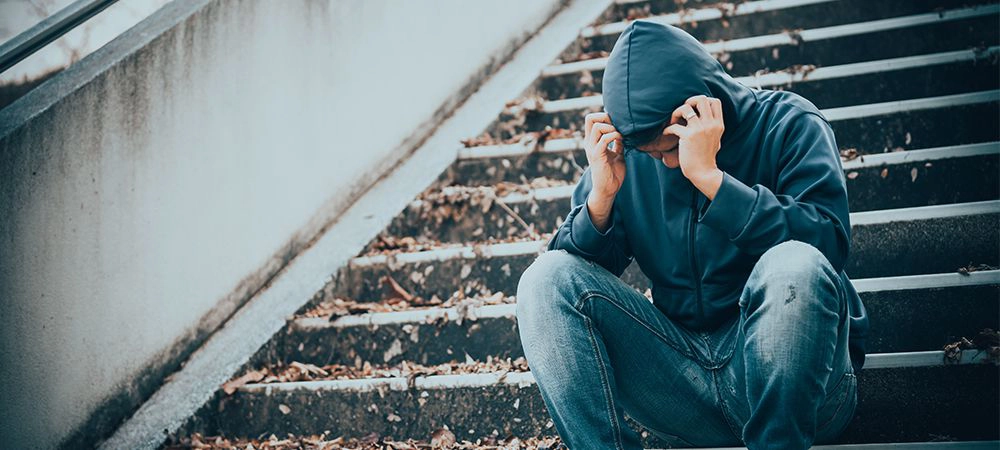Teens and Addiction
While many voices are engaged in public discussion about substance use these days, the importance of preventing use among young people too easily falls out of the conversation.
As advocates and pundits debate the legalization of marijuana and addiction treatment for opioid use—legitimate issues that certainly warrant discussion—too little attention is paid to prevention and early intervention for adolescents. Not enough focus is placed on public health approaches that can keep young people from developing substance use problems in the first place. If you suspect that your teen may be using, you should get them into recovery immediately.
Addiction and Adolescence – a Serious Issue
People tend to see alcohol and other drug use as a social issue and have difficulty recognizing that it is also a health issue. Because people generally don’t understand the ways in which substance use impacts healthy development, they tend to assume that it is best handled by parents, teachers, or supportive peers, and typically don’t see the value of a public health approach that draws on the expertise and capacity of primary care providers.
Each day, hundreds of youth aged 12-14 initiate drugs and alcohol into their lives. Millions of adolescents are diagnosed with a substance use disorder annually. Many of us have trouble wrapping our minds around this shocking reality.
At first, we may simply blame their age. They are young; they are acting out; they cannot yet make rational decisions. They are just teenagers, experimenting, trying to claim a social status among their peers. We blame the crowd they are with, their impulses, and sometimes even ourselves, without truly understanding just why this fact is so hard.
Addiction and Adolescence – What Are They Using?
Parents play a critical role in their children’s lives. As our kids become pre-teens and teens, we worry about new risks they may experience. One such risk is the use of substances like alcohol, marijuana, tobacco, and other drugs. Parents can help by talking to their teen’s doctor or pediatrician about screening for substance use. Then, if needed, addiction treatment can begin.
You can help your child by watching out for the following substances.
- Alcohol, marijuana, and tobacco are substances most used by adolescents.
- By 12th grade, about two-thirds of students have tried alcohol.
- About half of 9th through 12th grade students reported ever having used marijuana.
- About 4 in 10 9th through 12th grade students reported having tried cigarettes.
- About 3 out of 10 admitted trying illegal drugs like cocaine or heroin.
- Among 12th graders, close to 2 in 10 reported using prescription medicine without a prescription.
Addiction and Adolescence – What are the Risks?
Addiction can do the following:
- Affect the growth and development of teens, especially brain development
- Occur more frequently with other risky behaviours, such as unprotected sex and dangerous driving
- Contribute to the development of adult health problems, such as heart disease, high blood pressure, and sleep disorders
The earlier teens start using drugs, the greater their chances of continuing to use them and developing substance use problems later in life.

Addiction and Adolescence – What are the Signs?
Adolescence is a time of firsts: first cigarette, first drink, first love, and so on. It is often a complicated time for teenagers and their families. It is important to maintain and affirm your values but also to establish boundaries that cannot be overstepped and inform your teen of the many dangers that may lurk on the journey to adulthood. At the same time, you should obviously encourage your teenager along this path and promote contact with the outside world.
There are several reasons why teenagers turn to cigarettes, alcohol, drugs, or gambling. They can be a means of relaxation, a way of dealing with problems, a social tool, or an object of curiosity. No matter what the reason is, this behaviour is not uncommon among adolescents, but it is important to know how to recognize an addiction problem.
Addiction can be psychological (believing that you can’t function without using) or physical (a physical adaptation to a substance that leads to increased use to get the same results and withdrawal symptoms upon quitting).
Behavioural signs of substance abuse in your teenager include:
- Avoiding eye contact
- Ignoring or breaking curfew
- Acting irresponsibly
- Frequently asking for money
- Stealing
- Locking bedroom doors
- Making secretive calls
- Isolating from others/damaging relationships with family or friends
- Making excuses, or outright lying
- Withdrawing from classroom participation/slipping in grades
- Resisting discipline or feedback
- Missing school or work
- Losing interest in hobbies or activities
- Abandoning long-time friends
Physical indicators of possible substance abuse include:
- Poor hygiene/change in appearance
- Glazed or bloodshot eyes
- Frequent runny nose or nosebleeds
- Paranoia, irritability, anxiety, fidgeting
- Difficulty staying on task/staying focused
- Small track marks on arms or legs/wearing long sleeves even in warm weather
- Pupils larger or smaller than usual
- Cold, sweaty palms or shaking hands
- Sores on the mouth
- Headaches
- Puffy, swollen face
- Extremely tired or extremely hyperactive
- Rapid weight gain or loss
If your adolescent displays these symptoms, talk to a doctor or addiction counsellor about getting help. The earlier you intervene, the greater the chance that recovery will be successful and that your teen will stop using.
Addiction – Talking to Your Adolescent
It will probably be difficult to discuss the problem of addiction with your teenager. However, it is important to do so as soon as possible to reduce the consequences of substance use and seek help.
The following strategies will make the talk more successful:
- Make sure your teen is not under the influence of any substance.
- Don’t act impulsively. Take the time to think before acting.
- Calmly bring up the subject.
- Express how you feel about the problem instead of criticizing it.
- Use the word “I” instead of “you.” Teenagers often have a hard time accepting criticism.
- Encourage your teenager to express how he or she feels about the situation.
- Make your teenager feel that you are listening to them.
- Explore the reasons that could be behind the problem.
- Don’t minimize the importance of your teen’s words or feelings.
- Together, establish boundaries to be respected.
- Don’t be afraid to apply boundaries that you have already established.
- Become allies in searching for solutions.
- Also show interest in other, more positive aspects of your teen’s life.
- Applaud their efforts and successes.
Facing the many difficulties encountered during adolescence can be a major challenge for parents. Such difficulties are often added to the many other issues you are dealing with in your life. However, don’t ignore your teenager’s problems. Demonstrate that you care about their well-being and development. This will help your child experience a smooth passage to adulthood.
Addiction Treatment for Teens
While resources vary from community to community, be assured that help is within reach. Local resources include schools, medical professionals, mental health specialists, and treatment providers. If you are searching for an addiction treatment provider with specialized care for teens, call Addiction Rehab Toronto.
Our treatment programs for teens start with physical and mental health assessments, substance use history, and information about the individual’s family and life. This helps us determine the appropriate level of care. Given the right treatment and support, adolescents struggling with substance use disorder can move on to happy, healthy, productive lives.




